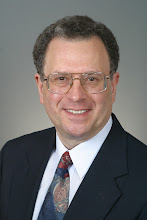
The line between fraud and profit-mak
ing--or stupidity--is often a blurry one. For instance, Senelick opens with the example of a promotional brochure trying to persuade him to attend a seminar on how to get more money from worker's compensation. Maybe the techniques being taught are fraudulent--but probably not. Maybe they're comparable to ambulance chasing. Distasteful, perhaps, but not fraudulent. Or maybe they're simply techinques to run a practice more efficiently through better marketing and the use of the proper ICD codes.
Similarly, he cites promotions for "free evaluations" and questions--correctly--how many are told that everything is normal. Setting aside the cases of clear fraud--in which a patient is told that he/she has a true medical issue where none exists--face it: Many of us have some problem or condition that could be corrected or improved. The system, for better or worse, compensates for such interventions. It's no more or less fraudulent than a home inspector, hired by a potential home buyer, finding minor items that occur in most properties--plugs with reversed polarity, evidence of some water leakage somewhere at some time in the past, unchanged furnace filters.
Then there are the cases of patient stupidity--demanding antibiotics for viral infections, for instance. (And the spineless physicians who acquiesce.) Or the "patient belief system" that's shaped by incessent TV commercials for the latest and greatest drug when the patient may not even have the condition.
It's not always fraud.
Read the Article at HuffingtonPost
